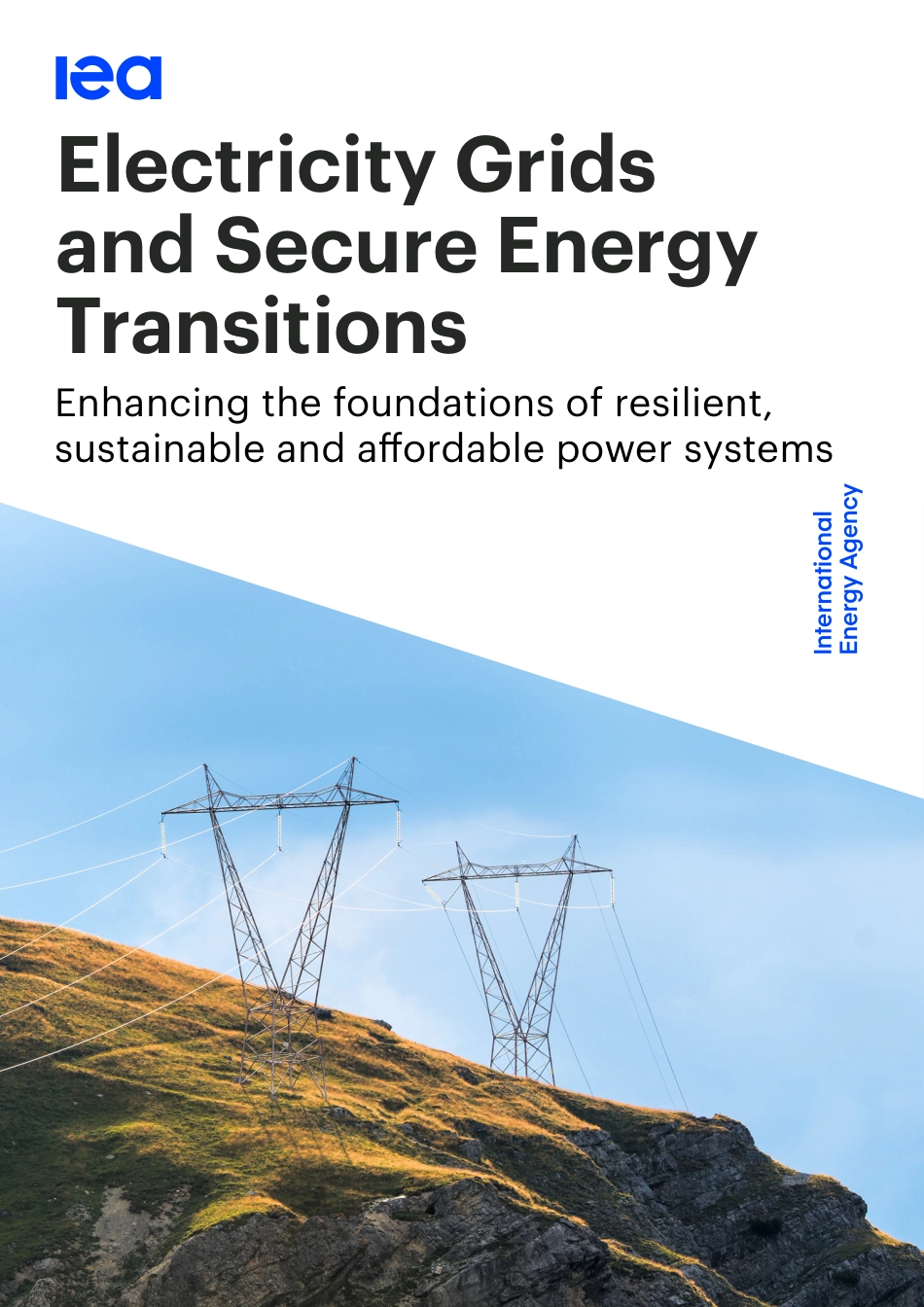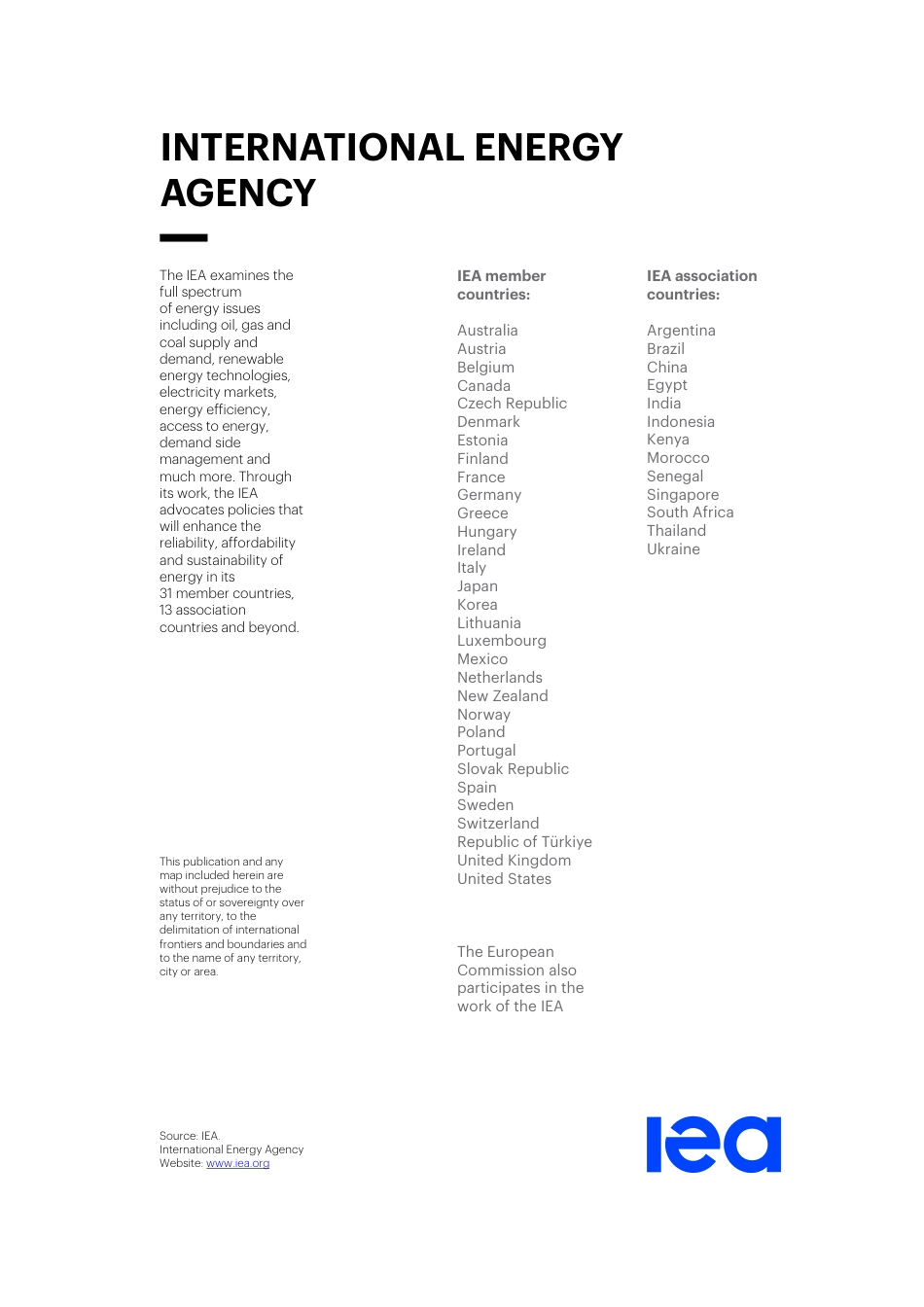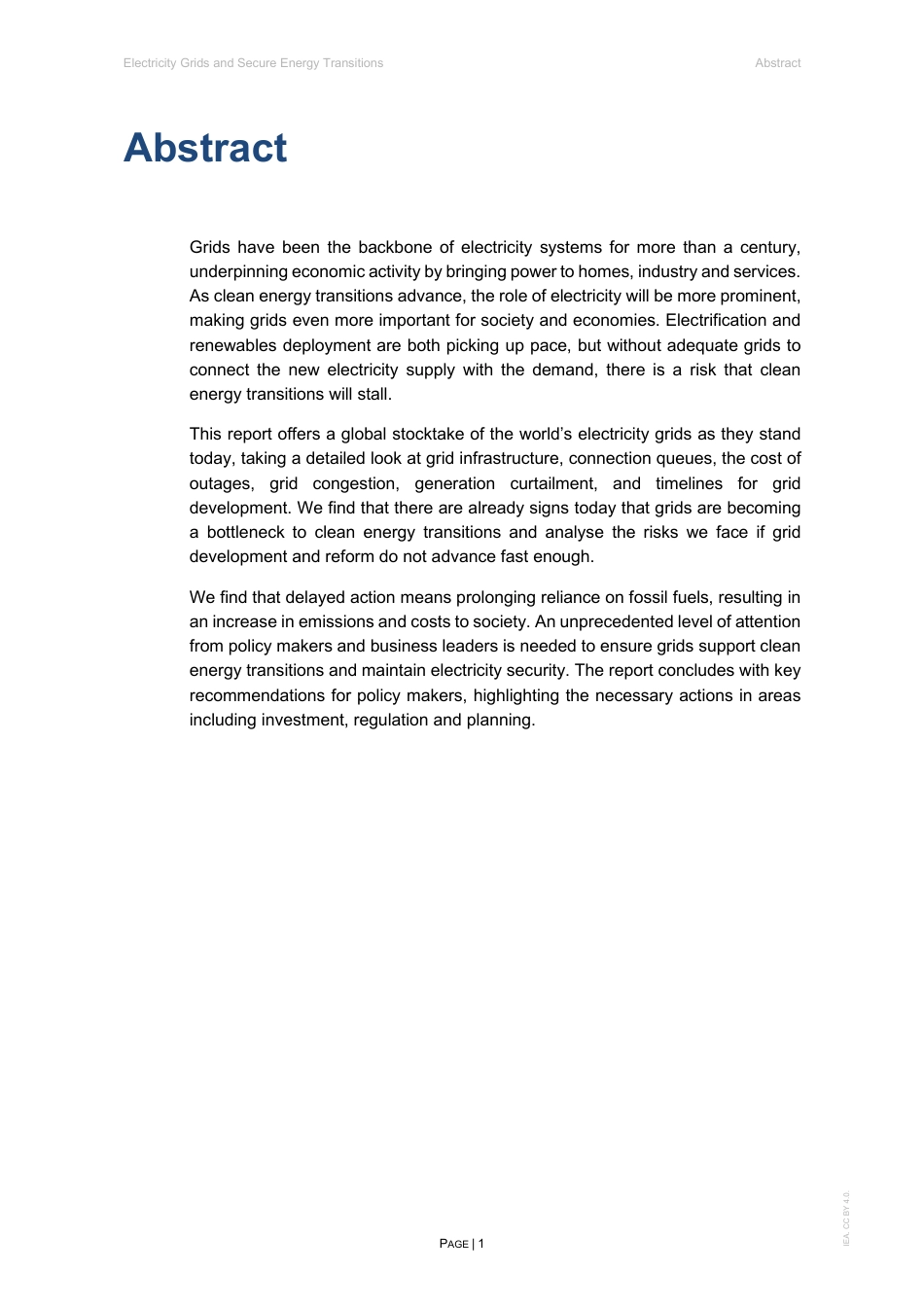Electricity Grids and Secure Energy TransitionsEnhancing the foundations of resilient, sustainable and affordable power systemsThe IEA examines the full spectrum of energy issues including oil, gas and coal supply and demand, renewable energy technologies, electricity markets, energy efficiency, access to energy, demand side management and much more. Through its work, the IEA advocates policies that will enhance the reliability, affordability and sustainability of energy in its 31 member countries, 13 association countries and beyond.This publication and any map included herein are without prejudice to the status of or sovereignty over any territory, to the delimitation of international frontiers and boundaries and to the name of any territory, city or area.Source: IEA. International Energy Agency Website: www.iea.orgIEA member countries: AustraliaAustriaBelgiumCanadaCzech RepublicDenmarkEstoniaFinlandFranceGermanyGreeceHungaryIrelandItalyJapanKoreaLithuaniaLuxembourgMexicoNetherlandsNew ZealandNorwayPolandPortugalSlovak RepublicSpainSwedenSwitzerlandRepublic of TürkiyeUnited KingdomUnited StatesThe European Commission also participates in the work of the IEAIEA association countries:Argentina BrazilChinaEgyptIndiaIndonesiaKenyaMoroccoSenegalSingapore South Africa Thailand UkraineINTERNATIONAL ENERGYAGENCYElectricity Grids and Secure Energy Transitions Abstract PAGE | 1 IEA. CC BY 4.0. Abstract Grids have been the backbone of electricity systems for more than a century, underpinning economic activity by bringing power to homes, industry and services. As clean energy transitions advance, the role of electricity will be more prominent, making grids even more important for society and economies. Electrification and renewables deployment are both picking up ...



